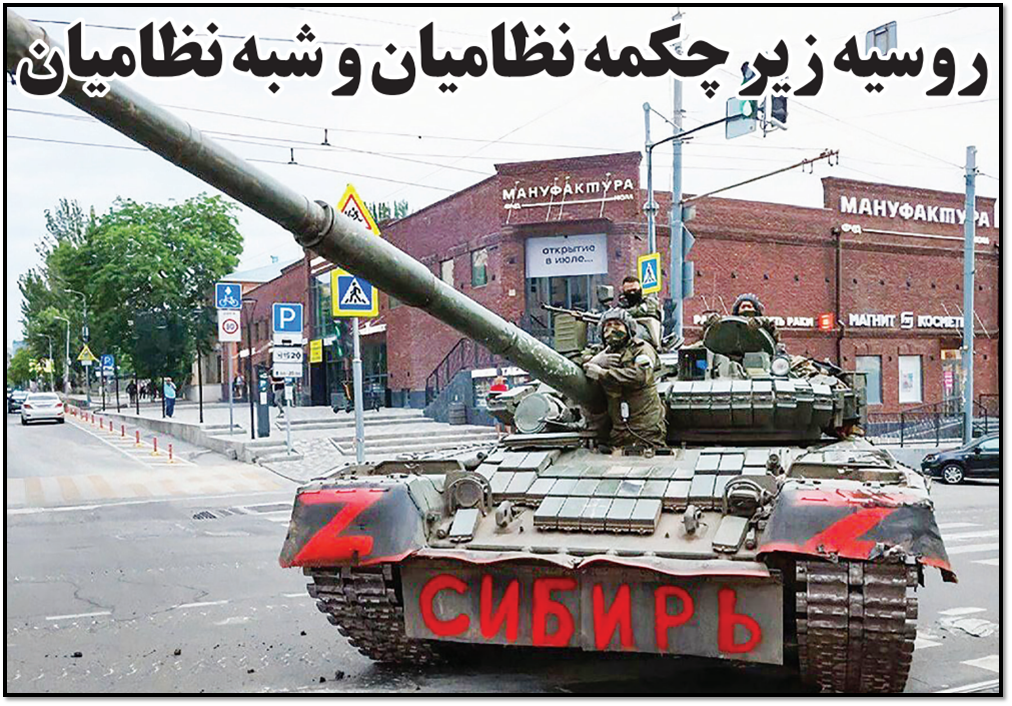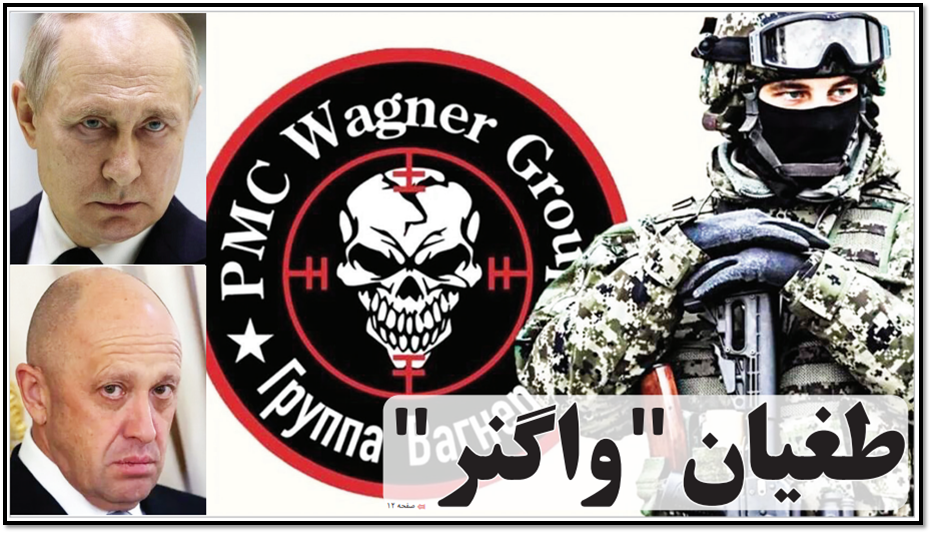Iranian leaders uniformly backed Russia’s government in the aftermath of the failed rebellion by the Wagner Group, a Russian mercenary force with close ties to the Kremlin. “Iran supports the national sovereignty of Russia,” President Ebrahim Raisi assured President Vladimir Putin in a phone call on June 26, 2023. Iranian media went further by accusing Western powers of fomenting unrest.
The quick response to the attempted coup highlighted Iran’s tighter embrace of Putin ever since he launched an invasion of Ukraine in 2022. Iran and Russia have had a rocky relationship going back almost four centuries, including the Qajar dynasty’s loss of territory to the Russian Empire in the 19th century and the Soviet Union’s brief occupation of Iran in the 20th century. But the two nations have cooperated on shared interests since the Iranian revolution in 1979 and the fall of the Soviet Union in 1989. Those ties deepened as Iran provided drones and other weaponry for Russia’s war in Ukraine.
On June 23, Wagner forces marched toward Moscow after seizing the southern port city of Rostov-on-Don. They reportedly intended to topple Defense Minister Sergei Shoigu, a rival of Wagner chief Yevgeny Prigozhin. But the private military company backed down less than 24 hours later, after Belarusian President Aleksandr Lukashenko reportedly negotiated a ceasefire.
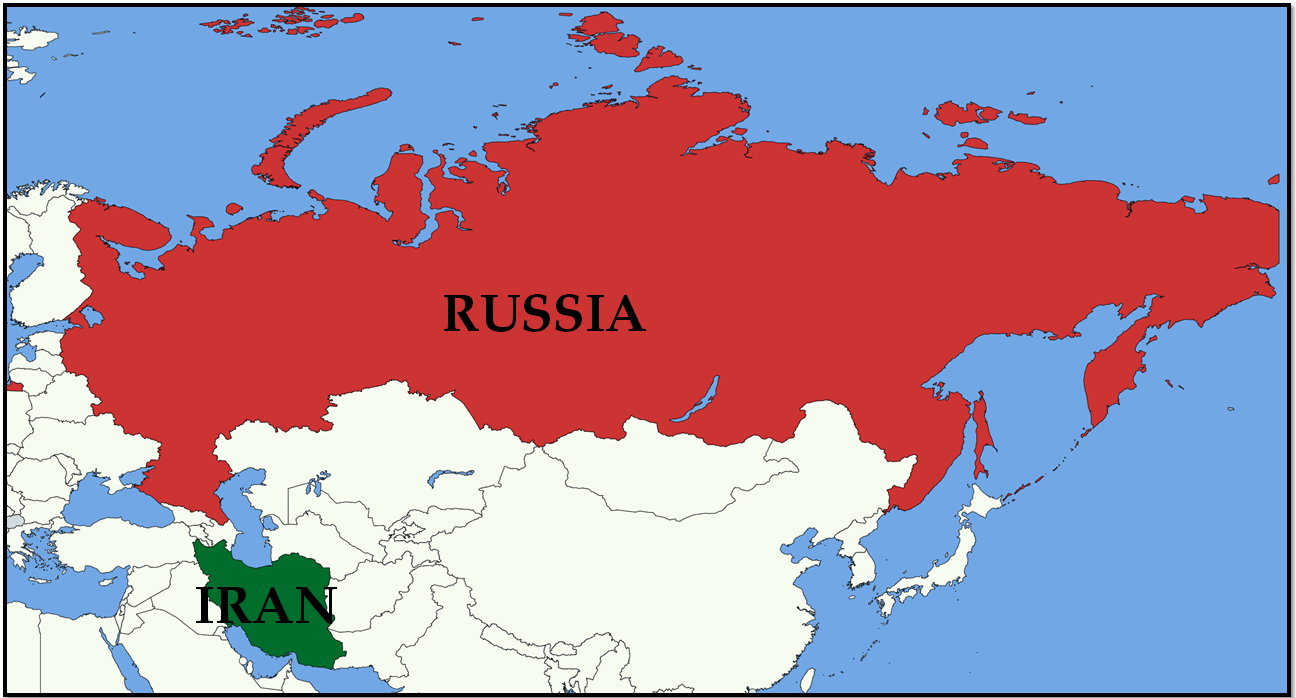
Iran’s foreign ministry described the rebellion as an internal issue. The Islamic Republic “supports the rule of law in the Russian Federation,” Foreign Ministry Spokesman Nasser Kanaani said in the first public reaction from Tehran on June 24. In a phone call on the same day, Foreign Minister Hossein Amir-Abdollahian told his Russian counterpart, Sergey Lavrov, that Iran opposed foreign interference.
Maj. Gen. Mohammad Bagheri, head of the Armed Forces General Staff, discussed security collaboration with Defense Minister Sergei Shoigu, who provided an update on the situation in Russia, on June 28. He also invited Shoigu to visit the Islamic Republic.
Iranian officials refrained from assigning blame for the mutiny while conservative newspapers and websites held the West responsible. Tasnim News Agency, which is associated with the Revolutionary Guards, posited that NATO backed the uprising “to take revenge for the defeat and failure” of Ukraine’s counteroffensive against Russia. Nour News, affiliated with Iran’s Supreme National Security Council, accused Western media of “purposeful planning for maximum exploitation” of the mutiny. Western outlets waged “cognitive warfare” on Russia by deliberately trying to “make Russia's situation look dire,” Nour News reported.
A range of Iranian newspapers devoted prominent parts of their front pages to developments in Russia on June 24. “The dagger of betrayal did not sink in,” wrote Javan, a hardline daily linked to the Revolutionary Guards. “NATO resorted to Wagner’s treachery to compensate for the defeat on the battlefield,” claimed Kayhan, a hardline daily whose editor is appointed by the supreme leader. “Putin made a mistake in giving wings to the Wagner group!” Aftab-e Yazd, a reformist paper, headlined.
Related Material: Iran & Russia: Gyrating Trade Grows
Related Material: Iran & Russia: Burgeoning Military Ties
China, a key partner of both Iran and Russia, responded similarly to the Islamic Republic following the attempted rebellion. The “incident” was “Russia’s internal affair,” Foreign Ministry Spokesperson Mao Ning said on June 26. “As Russia’s friendly neighbor and comprehensive strategic partner of coordination for the new era, China supports Russia in maintaining national stability and achieving development and prosperity, and we believe in Russia’s ability to do so.” The two countries remained in close touch, she added. Iran, China, and Russia usually refrained from commenting on each other’s domestic unrest. They often criticized Western countries for calling out their repressive policies.
Until the rebellion, Prigozhin and his Wagner Group were crucial to Russia’s campaign in Ukraine, despite strained relations with Russia’s conventional military leadership. Prigozhin, often referred to as “Putin’s chef,” is an ex-convict from St. Petersburg. He served nine years in prison during the 1980s for robbery and theft. Afterward, he ran hot dog stalls and restaurants as well as a catering company that supplied the Kremlin. In 2014, he established the Wagner Group, which has operated as an unofficial—and more brutal—proxy of the Russian government in conflicts across Europe, the Middle East and Africa.
Aftab-e Yazd (June 24, 2023)
“Putin Made a Mistake in Giving Wings to the Wagner Group!”
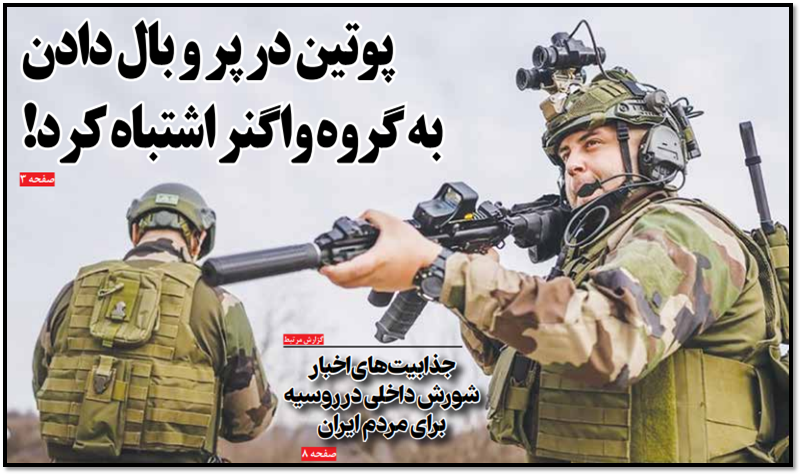
Ruydad Emrooz (June 24, 2023)
“Chef’s Special Recipe for Putin”
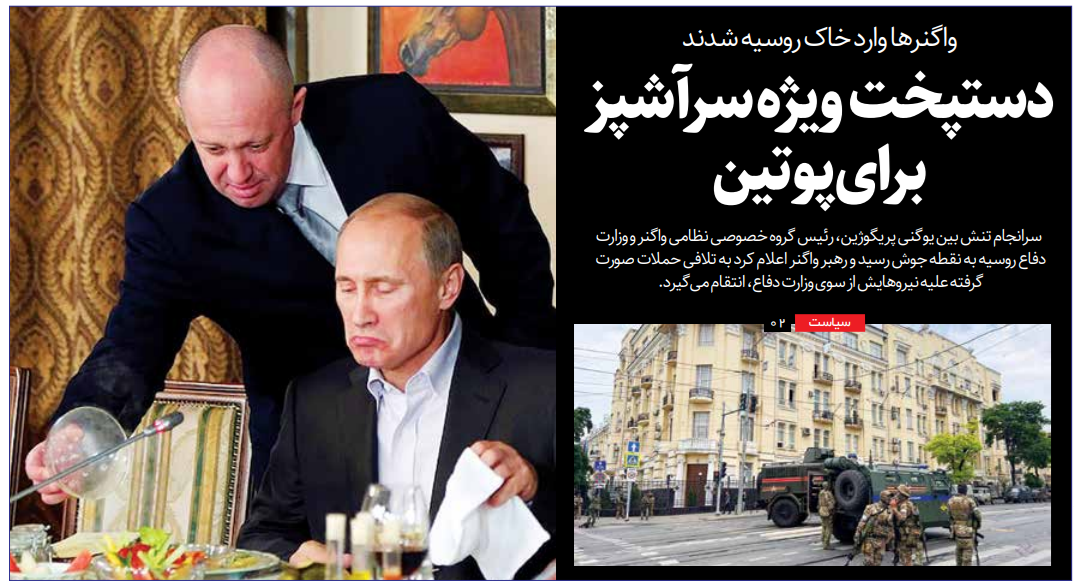
Eskenas (June 24, 2023)
“24 Fateful Hours for Putin”
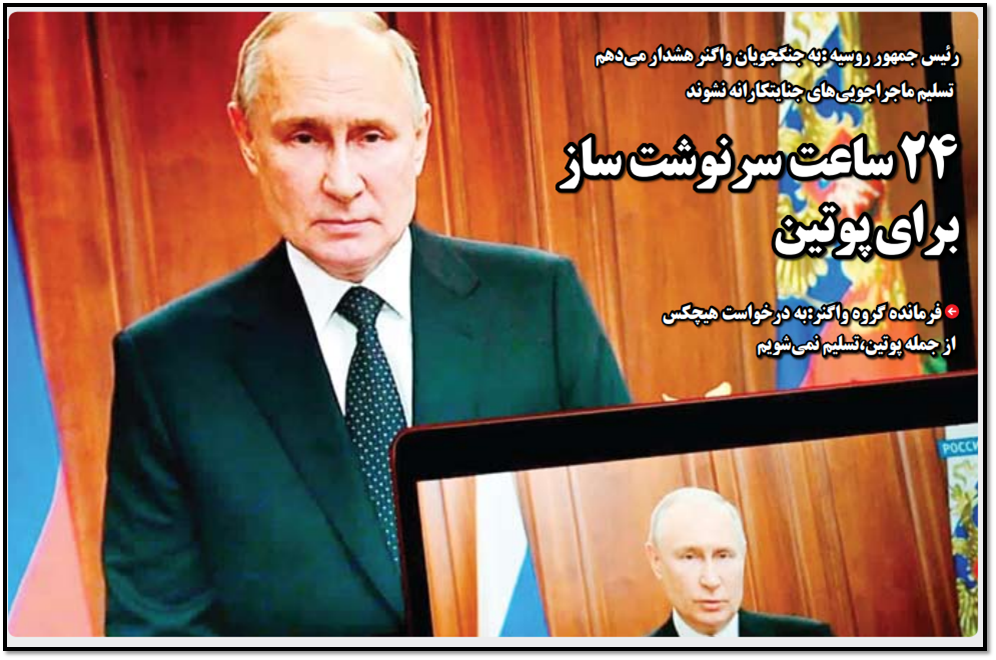
Atrak (June 25, 2023)
“Wagner Trouble for Moscow”
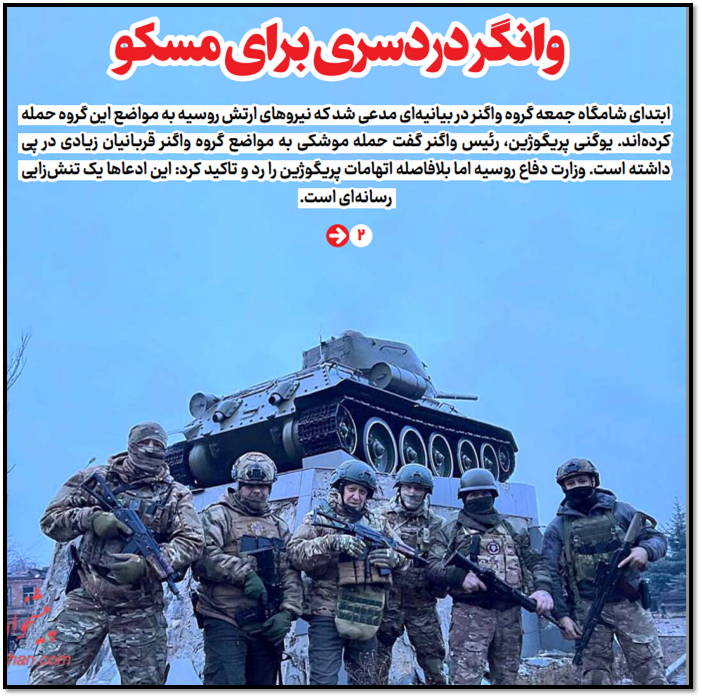
Akhbar Resanat (June 25, 2023)
“Rebellion of the Armed Chef”
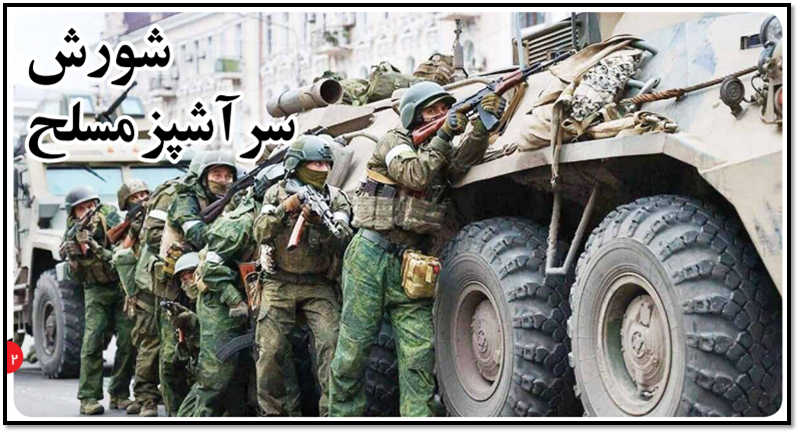
Eghtesad Kish (June 25, 2003)
“Wagner Rebellion”
Eghtesad Meli (June 25, 2023)
“Russia Under the Boots of Soldiers and Militias”
